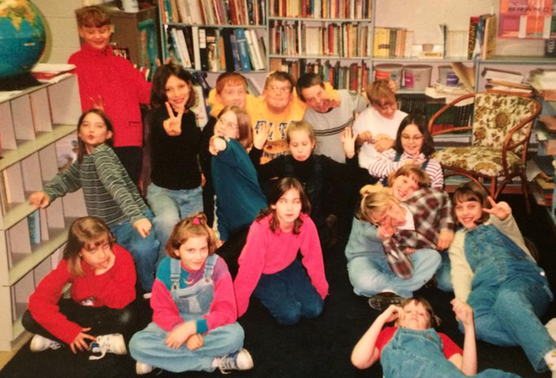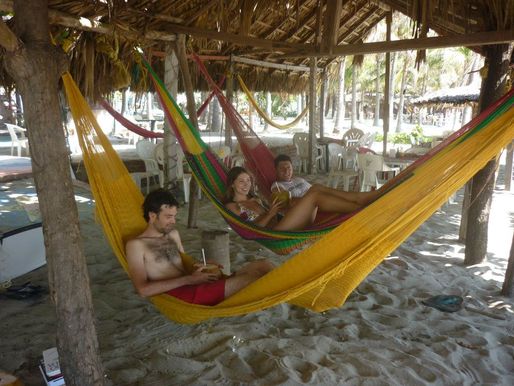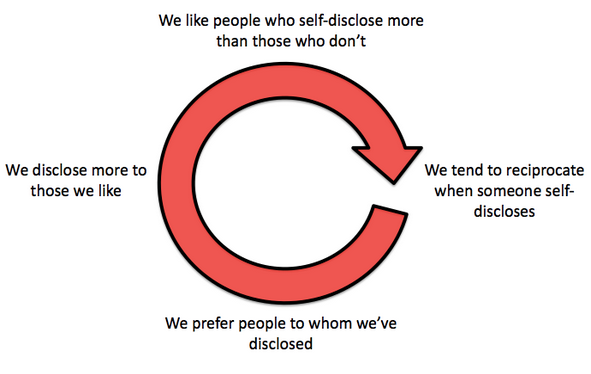|
So I was blogging at a lovely, quiet park the other day, when this mom showed up with a screaming, upset three-year-old. She was yelling and crying about something unintelligible, and she was not stopping. A few minutes later, another mom showed up with her three-year-old son. Apparently he knew the screaming child from preschool, because he immediately asked her, "Hey, Mandy! What's wrong?" And she told him what was wrong. If they were adults, Mandy probably would have seen her classmate/coworker/etc. coming, wiped her face and tried to act like everything was cool, and her friend would have pretended he totally didn't notice she'd been crying. Kids don't worry about appearing vulnerable. They feel things. They feel them hard. And they're not afraid to talk about it. Kids don't play games (well, not that kind). They don't pretend not to see things. They're direct. If they see you crying, they ask you why. If asked, they answer. And this is one of the major reasons kids make friends more easily than adults. My 5th grade classmates and me -- back when we were better at making friends. See, in psychology, we say there are three requirements to making new friends: 1. Proximity (due to factors like convenience, the mere exposure effect, the odds of ever actually meeting each other, etc.) 2. Repeated, unplanned interactions (like at school, day care, play dates, extracurricular activities, church, parents' friends' kids, etc.) 3. A setting that allows or encourages people to open up and confide in each other. Kids have wilder emotions than adults, and they're less able (or motivated) to control them. Which leads to screaming fits that can last for hours... but also friendships that can last for minutes, weeks or years. And guess what? Even though you're all old now, you can still do the exact same thing -- well, almost. I meet a lot of people when I travel -- especially when I travel alone. Some of these encounters are meaningless drive-bys... but others lasted one afternoon seven years ago and I still smile like crazy when I think about them. Like right now. So warm and fuzzy. (Hi Dan! Hi Antony! Hi Jazz! MISS YOU LOVE YOU BYE!) Other travelers I know have similar experiences -- and I think it's because we let our guard down when we travel. We're not trying to impress anyone. We don't have to worry about judgement or rejection. We don't have to be all professional and stuff. Because, hey! Tomorrow, I'm going to Perth, and I'll never see you again. OMG new BFFs! I understand that in real life -- at work, in ongoing friendships and acquaintanceships and such -- you can't behave that way. Not exactly. But you can strive to be more like that. Or, at least, don't strive to be less like that. For example, this "hookup culture." Don't buy into it! It's so stupid and sad. People trying to hide their feelings and be the most seemingly detached and uninterested. People following some stupid, don't-text-her-for-three-days rule. People playing games. It's just... pathetic. Like, say you're at a party. A guy walks into the room -- and the moment you see him, it's like he's standing in a beam of sunshine. He sees you, too, and pushes his way past every other person at the party to talk to you. And when he says hello, you just hit it out of the park. You spend the next five hours talking, and talking, and talking! And you're like, It's 2am! I need to go home! I need to go to bed. BUT I WANT TO KEEP TALKING TO THIS AMAZING PERSON. So finally, an hour or two after you mean to, you exchange numbers and say goodnight. This story can end one of two ways: 1. One of you texts the other, like, right away. Before you get home, even! The one person tells the other how awesome it was meeting them, and that you definitely want to see them again, like ASAP. You both feel excited and breathless and wonderful. You remain open with each other about your excitement (and, therefore, stay on the same page about where and how fast things are going), and it's just the greatest thing ever. 2. You both wait some specified amount of time (24 hours, three days, or whatever bullshit you're mindlessly conforming to), each feeling anxious about whether and when the other will initiate. When you finally get his message, you wait some specified amount of time before responding. So he waits some specified amount of time. Finally maybe eventually you meet up, and each tries to act cool. For the duration of the... whatever it is... you don't feel joy. You feel anxiety and confusion. And you discuss these feelings with your friends, instead of your... whatever he is. Who would ever, ever, ever prefer the second ending? Well, according to Occidental sociologist Lisa Wade, fewer than 10-15% of people actually like hookup culture. 45-55% don't really like it, but mindlessly go along with it, anyway, because people can be so complacent. And about a third of people abstain from it, because they agree with me that it's sad and gross (or possibly because they're in a relationship). But I digress. Let's look at more platonic examples of openness and vulnerability facilitating adult friendshipships. In one study, psychologists hijacked a freshman orientation. They divided students into two groups. The first did typical icebreakers – e.g., “What’s your name, where are you from, what’s the last movie you saw?” The second did slightly stranger ones. Like, “Stare into your partner’s eyes without talking for one whole minute.” Or, “When was the last time you cried?” The second group’s activities sound thoroughly cringe-worthy and horrible… but its participants actually felt more positive feelings towards each other at the end of the day. These feelings lasted the entire semester. Other studies (including Collin and Miller, 1994) have shown that self-disclosure – which way too many young people consider “awkward” – is an important part of liking and bonding. And it’s a bit of a cycle. Take a look: Totally made this image all by myself. This is probably true for a lot of reasons. From the obvious (reciprocation, trust...and even just memorability -- a story about how your traditional Indian parents are trying to pressure you into an arranged marriage is a lot more interesting than small talk about the new Jurassic Park movie) to the untested hypothetical (like cognitive dissonance -- people get really uncomfortable when their attitudes and behaviors don't match... and if I just told this person that I can control my menstrual cycle with my mind, I must really like and trust them, right?). The point is, even small amounts of self-disclosure can help people develop relationships with someone new. Kids do this. Adults often don't, and probably should. So go do it. Go tell someone something you wouldn't normally share. Keep it appropriate -- you know, like at work and stuff -- and be mindful of the other person's response. If they look like the topic is uncomfortable for them, transition back to Jurassic World. And finally, don't confuse "self-disclosure" and "being vulnerable" with complaining and gossiping. No one likes a Yente, and no one likes a Debbie Downer. And let me know how it goes -- I'd be interested to hear!
4 Comments
anni
9/14/2015 04:59:08 am
what if you are 72 walk with 2 crutches very cultured and live in spain thanks
Reply
Harena upokimaki
3/24/2017 07:38:01 pm
Reply
Gaby
1/29/2019 03:47:06 pm
This is amazing
Reply
Justina
1/21/2020 07:06:20 am
Who are the authors of this study? I would like to read more about it.
Reply
Leave a Reply. |
About the Author

Eva is a content specialist with a passion for play, travel... and a little bit of girl power. Read more >
Want to support The Happy Talent? CLICK HERE!
Or Find me on Patreon!
What's Popular on The Happy Talent:
Trending in Dating and Relationships:
What's Popular in Science: Playfulness and Leisure Skills:
Popular in Psychology and Social Skills:
Categories
All
|




























 RSS Feed
RSS Feed